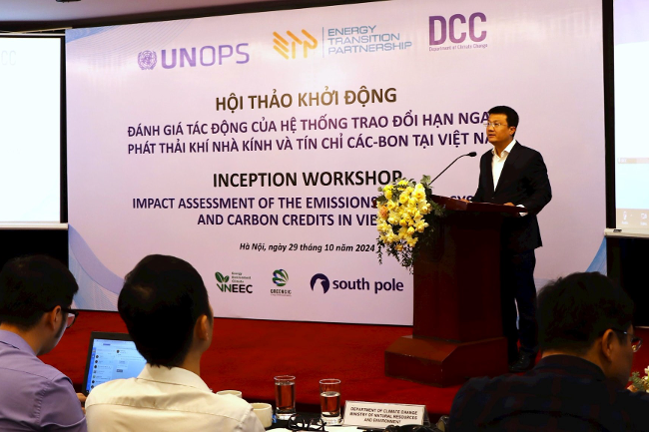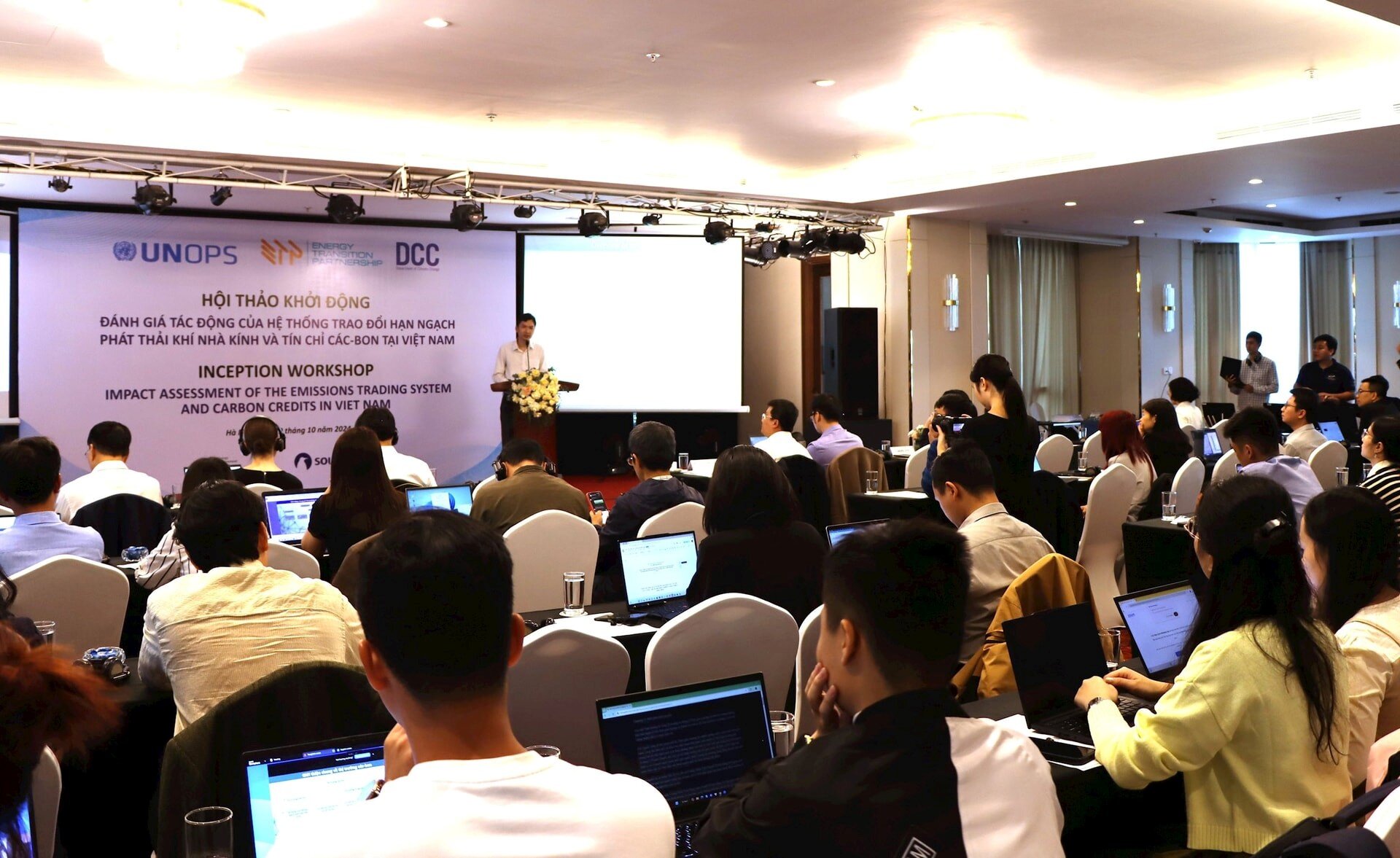This technical support, funded by UNOPS under the Southeast Asia Energy Transition Partnership (ETP), aims to support Viet Nam’s Department of Climate Change in developing the country’s carbon market. Through the assessment process, the consulting consortium will provide recommendations for identifying optimal management approaches for greenhouse gas emission quotas and carbon credits to facilitate the effective operation of the carbon market in Viet Nam.
In his remarks, Mr. Nguyen Tuan Quang, Deputy Director of the Department of Climate Change, emphasized that carbon pricing (including carbon taxes and carbon markets) is a global trend for controlling greenhouse gas emissions. Viet Nam is also preparing for the establishment of a domestic carbon market.
 Mr. Nguyen Tuan Quang, Deputy Director of the Department of Climate Change
Mr. Nguyen Tuan Quang, Deputy Director of the Department of Climate Change
Viet Nam’s Environmental Protection Law and Decree No. 06 on greenhouse gas emissions mitigation and ozone layer protection have laid out a roadmap for developing the country’s carbon market. By June 2025, emission quotas will be allocated, and a pilot greenhouse gas emissions trading system (ETS) will be launched. Moving forward, it is necessary to design and manage an ETS system tailored to Viet Nam’s development conditions. Mr. Quang stated that the assessment task led by UNOPS will continue until June 2025 to support the implementation of the pilot phase.
At the kickoff workshop, both domestic and international experts updated attendees on Viet Nam’s carbon market regulations and international carbon credit trading, sharing global experiences in managing and assessing impacts for the ETS and international carbon credit transactions.
 The workshop overview
The workshop overview
In the upcoming pilot phase, only large emitters in sectors such as iron and steel production, cement, and thermal power generation will participate in the carbon market (approximately 150 enterprises). The Ministry of Natural Resources and Environment will organize and manage quota exchange, recovery, redemption, and borrowing activities. Viet Nam plans to officially operate its carbon market by 2028 and aims to connect its domestic market with international and regional markets after 2030.
Participants at the workshop discussed various aspects of designing the greenhouse gas emissions trading and carbon credit system, including international experiences and key considerations relevant to Viet Nam's context.
Mr. John Robert Cotton, Senior Program Manager of the Southeast Asia Energy Transition Partnership (ETP), highlighted that technical support would provide in-depth expertise from both local and international experts. Evidence-based recommendations will help policymakers design a system that aligns with the domestic market and legal framework, strengthening Viet Nam’s emission reduction and climate adaptation efforts.